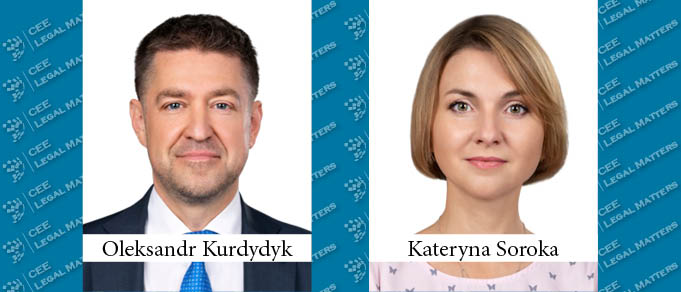Historically, Ukraine has been known as a country with a good investment climate, particularly in the energy sector. The country’s high feed-in tariff rates, general digitalization, well-established and simplified regulatory procedures, and the availability of alternative suppliers for works and services, among other factors, have contributed to a large influx of investors in new green energy projects in Ukraine.
The large-scale and aggressive war of the Russian Federation against Ukraine, which first began in 2014 and further escalated in 2022, has led to an increasing number of human losses and widespread material destruction. Power plants and power lines, airports, ports, schools, hospitals, roads, residential buildings, state and municipal buildings – literally all types of buildings and facilities that unfortunately are or were in the zone of active hostilities, or that simply became targets of rocket fire from the side of the Russian Federation – require at a minimum repair or are, in many cases, beyond repair.
In our opinion, the key features of the post-war reconstruction of Ukraine will be its timing and the socially crucial need to provide fast and substantive results. From the state’s point of view, projects should be implemented where and to the extent required by the state, based on dialogue with the communities concerned and considering their individual needs (for projects of a local nature) at the preparatory stage. At the same time, the implementation of large-scale reconstruction of infrastructure is impossible without attracting private financing. In this case, public-private partnerships appear to be the right mechanism to achieve a cumulative effect.
In view of the above, the Ukrainian government is considering changes to the legal framework of public-private partnerships (PPPs).
To this end, the start of public discussions on this issue has recently been announced, according to which the following main legislative and procedural changes are being discussed by the Ukrainian government: (1) introduction of a simplified preparation procedure for reconstruction PPP projects; (2) the term of reconstruction projects under the umbrella of the refreshed PPP regime will be limited to 15 years; (3) all PPP tenders will be administrated through an electronic procurement system, developed with support from the European Bank for Reconstruction and Development; (4) a dedicated PPP agency will provide technical support to tender commissions; and (5) a special procedure for engaging advisors for the preparation of reconstruction projects will be introduced.
Further, the Ukrainian state guarantees and assurances for investors may also include: (1) a simplified procedure for obtaining antimonopoly clearance in relation to potential state aid provided by the state of Ukraine to investors; (2) no land tax payable by an investor during the term of a PPP agreement; (3) a simplified procedure for taking land plots for the implementation of reconstruction projects; (4) no environmental impact assessment would be required in the context of reconstruction projects; (5) assignment of “protected” status to expenses from the Reconstruction Fund; and (6) establishment of an insurance fund in a suitable and “safe” jurisdiction, to provide PPP reconstruction investors with insurance covering military risks (e.g., MIGA).
To start the legislation framework change, the government has prepared a draft law on amendments to the Law of Ukraine on Public-Private Partnership. The draft law introduces a procedure for the formation of the list of state reconstruction PPP projects and a list of local reconstruction PPP projects. Projects included in both lists should be prepared for tender in accordance with a simplified procedure and in the shorter term.
The draft also provides rather short procedural terms for each stage of the private partner selection process. In general, it is expected that the simplified tender preparation procedure and selection of a private partner will take between seven and 11 months, in contrast to the usual procedure that lasts for 20 months. The draft also provides for a commissioning fee payable to the private partner out of the funds received from various donors or the state budget, subject to the private partner reaching agreed KPIs. Lastly, according to the draft, tenders will be conducted using the so-called electronic trading system, which is expected to be developed and launched with support from, and based on the experience of, the EBRD.
By Oleksandr Kurdydyk, Partner and Co-Head of Energy, and Kateryna Soroka, Senior Associate, Kinstellar
This Article was originally published in Issue 9.6 of the CEE Legal Matters Magazine. If you would like to receive a hard copy of the magazine, you can subscribe here.




